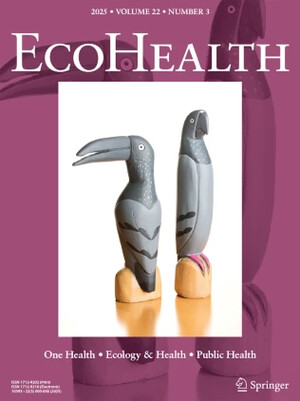
A membrane-anchored Theileria parva cyclophilin with a non-cleaved amino-terminal signal peptide for entry into the endoplasmic reticulum
Abstract
Recent studies suggest that peptidyl-prolyl isomerases of the cyclophilin family, that access the secretory pathway, can be involved in the interaction of parasitic protozoa with mammalian host cells. The amino acid sequence of a cDNA encoding a cyclophilin family member of the intracellular protozoan parasite of cattle Theileria parva contains a conserved C-terminal domain that exhibits 70% amino acid identity to cyclophilin proteins from other organisms, and a unique 60 amino acid novel N-terminal extension. Cell-free expression of the cDNA revealed a 26kDa amino translation product, indicating expression of the N-terminal domain. The protein-coding region contains three short introns, less than 100 base pairs in length and Northern blot analysis demonstrates expression of a single 0.9kb transcript in the piroplasm and schizont stages. The transcript is present in high abundance in the intra-lymphocytic schizont stage. The recombinant protein binds to immobilized cyclosporin A, a finding consistent with peptidyl-prolyl cis-trans isomerase function in vivo. A predicted N-terminal signal peptide was functional for entry into the eukaryotic secretory transport pathway in a cell-free in vitro transcription/translation system. The C-terminal cyclophilin domain was translocated across the membrane of the endoplasmic reticulum and the uncleaved signal peptide functioned as a membrane anchor.
Citation
Veterinary Parasitology;121(1-2): 65-77









